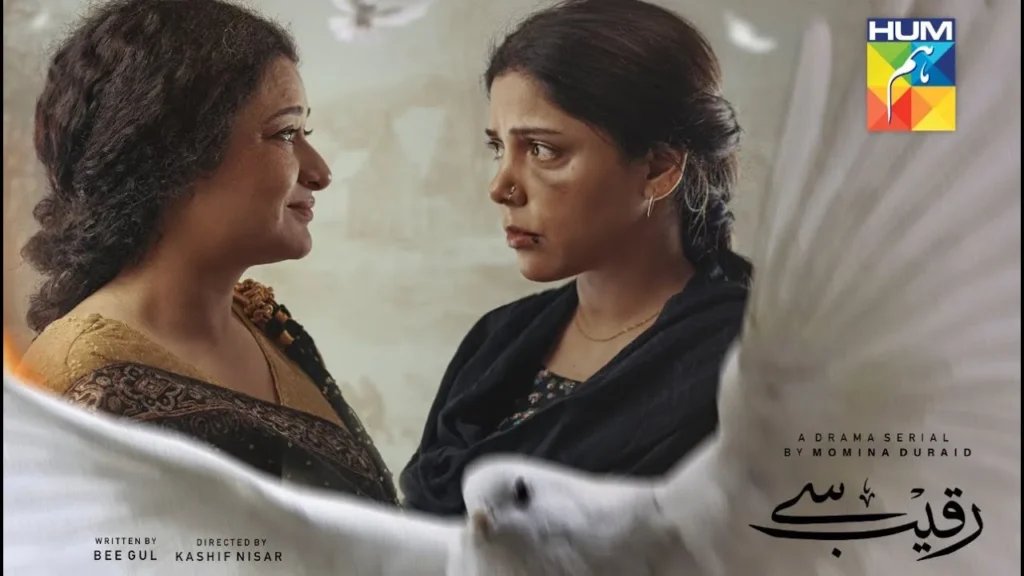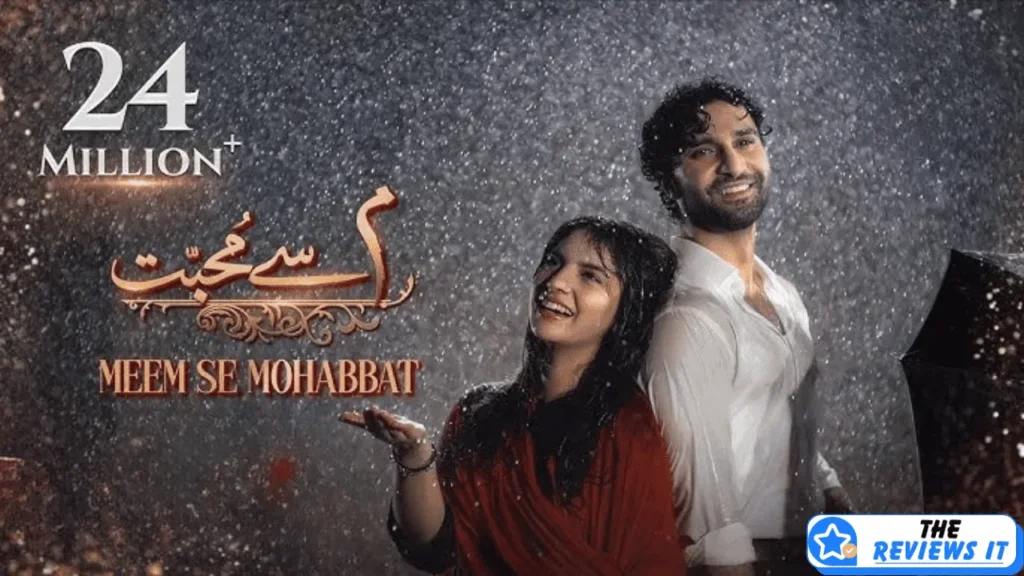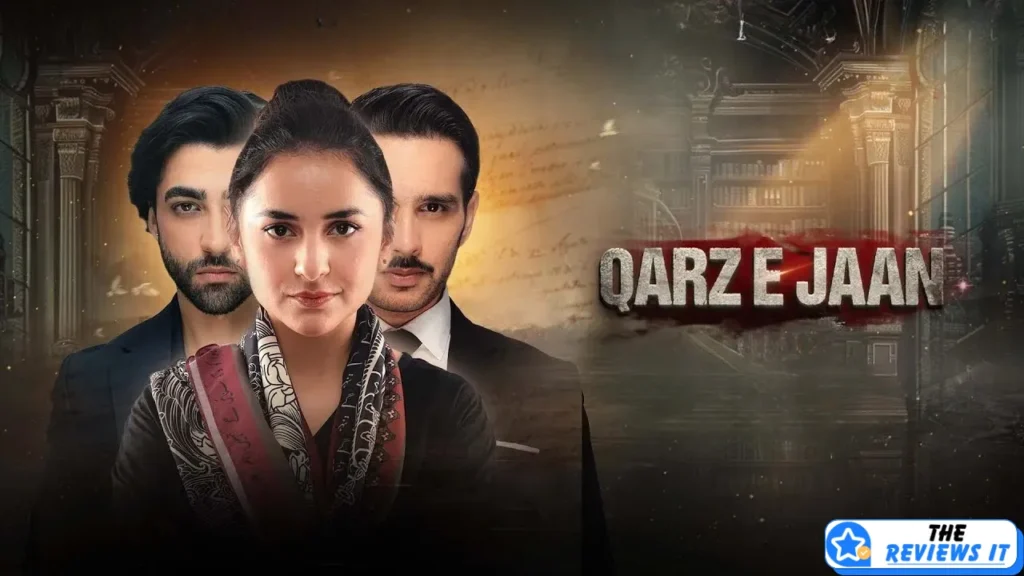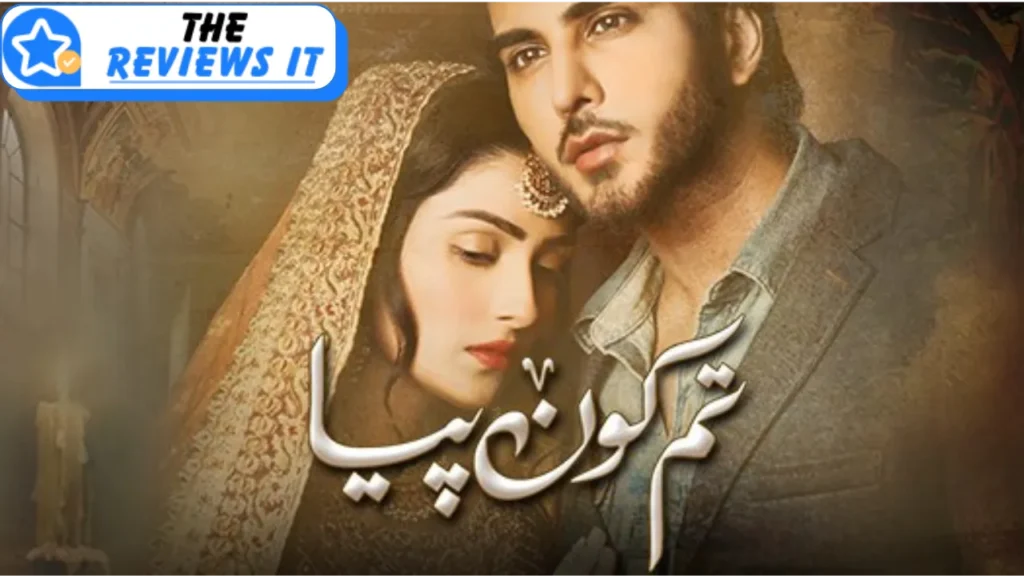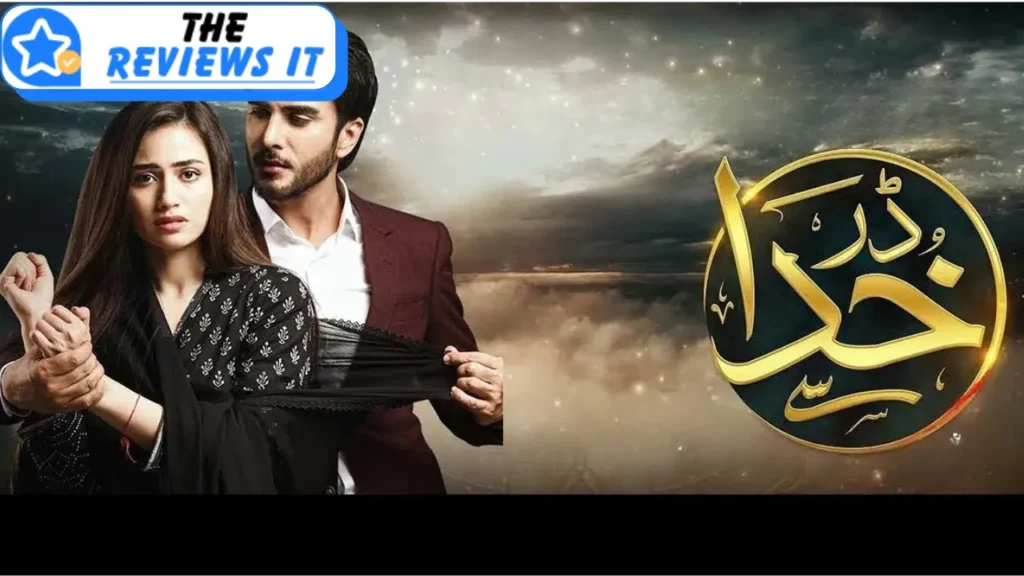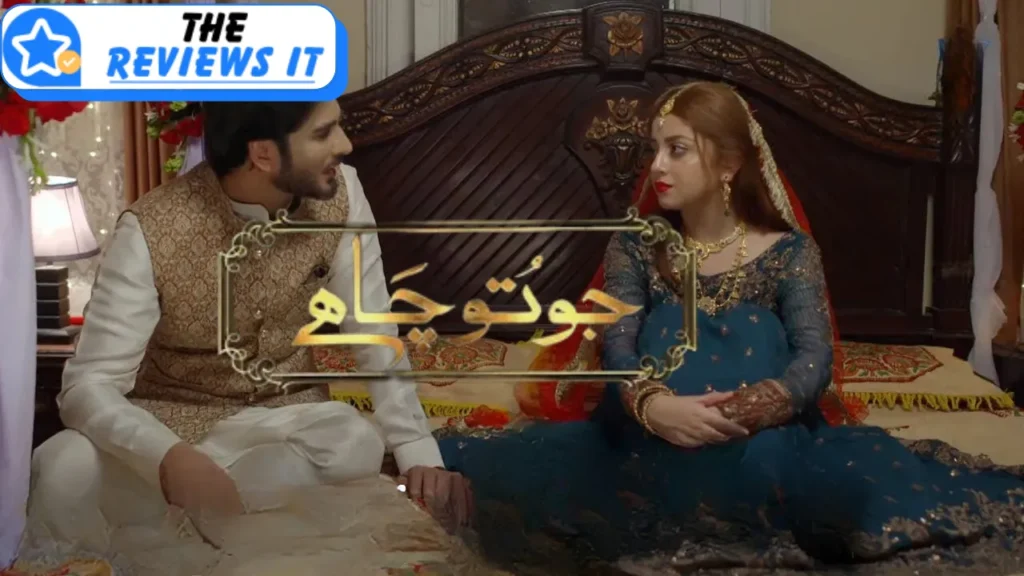Raqeeb Se Drama Review: Raqeeb Se is one such tale of broken relationships that has had a profound impact on the Pakistani drama industry. The drama is penned by Bee Gul, a well-rounded scriptwriter and directed by Kashif Nisar, one of the most diverse directors in Punjab.
At the cornerstone of this structure are outstanding performances by Hadiqa Kiani as Sakina, Nauman Ijaz as Maqsood and Sania Saeed as Hajra but revealingly it is an entirely controlled and resonant portrayal in a reality check role by young actor Iqra Aziz that struck home for so many women who saw themselves in Ameera. The stellar cast together breathe life into the deep characters in Raqeeb Se which makes it a treat for anyone who enjoys good storytelling with great character growth.

Plot Summary
Raqeeb Se is a tale of love, sacrifice and the long shadows cast by missed chances from yesterday. It’s the story of Maqsood (Waqar Ali) whose life gets a U-turn upon meeting his first love Sakina after some years later. Coming home to hide with him, Sakina brings years of buried emotions, secrets and unresolved arguments.
The drama revolves around the life of Maqsood and Hajra & their daughter Isha who now have to adjust with changed circumstances due to this unexpected reunion. The show takes us through the several forms of love, from unrequited to sacrificial and eternal. The show also explores the aftereffects of past choices and challenges whether some of those relationships have outlived their purpose or if humans are truly capable of forgiving that which is seemingly unforgivable.
Character Analysis: Raqeeb Se’s Heart
Raqeeb Se is a character driven drama and all the characters are not only essential but their contribution to its narrative structure holds value. The place where the actors act with their actual names, reveals more of Storbarths character than what type she is.
- Sania Saeed as Hajra : Maqsood’s wife, Sania excels in playing roles which are filled with dignity and elegance. Hajra is a signal of patience and resistance as she has to undergone all her miseries with straight face. Sania Saeed has also done an outstanding job at Hajra, a character one cannot help but sympathizes with or respect. The motif of sacrifice in the drama is used to describes her who faces the storm which Sakina coming back in her life.
- Nauman Ijaz as Maqsood: Nauman Ijaz delivers yet another masterful performance as Maqsood, a man torn between his past and present. Maqsood is a complex character, battling inner turmoil as he tries to reconcile his feelings for Sakina while staying committed to his family. Nauman Ijaz’s portrayal of Maqsood’s internal struggles and moral dilemmas is both compelling and heart-wrenching, adding layers to the narrative.
- Hadiqa Kiani as Sakina: Hadiqa Kiani, in her acting debut, plays the role of Sakina, Maqsood’s first love who reappears after years. Hadiqa brings an understated yet powerful intensity to Sakina, a woman haunted by her past and seeking refuge. Her performance is raw and vulnerable, making Sakina’s journey of love, regret, and survival resonate deeply with the audience.
- Iqra Aziz as Ameera: Iqra Aziz shines as Ameera, Sakina’s daughter, who is spirited, bold, and often impulsive. Ameera’s character adds a different dynamic to the story, representing the younger generation’s perspective. Iqra’s energetic and lively performance brings a refreshing contrast to the more subdued emotions of the older characters, while also highlighting Ameera’s own struggles with love and identity.
- Faryal Mehmood as Insha: Faryal Mehmood portrays Insha, Hajra and Maqsood’s daughter, with a mix of sensitivity and strength. Insha is a modern woman, caught between her parents’ past and her own future. Faryal’s performance captures Insha’s internal conflict and her journey toward understanding and acceptance, making her an integral part of the story’s emotional core.

Cast name and Roll
| Name | Roll |
| Hadiqa Kiani | Sakina |
| Noman Ejaz | Maqsood |
| Sania Saeed | Hajra |
| Iqra Aziz | Ameera, Sakina’s daughter |
| Faryal Mehmood | Insha, Hajra and Maqsood’s daughter |
| Saqib Sameer | Rafique, Sakina’s husband, later divorced |
| Hamza Sohail | Abdul Rahman a.k.a. Abdul, Insha’s love interest |
| Salman Shahid | Masood, Maqsood’s elder brother |
| Saba Faisal | Aatka, Masood’s wife and Maqsood’s sister-in-law |
| Hassan Mir | Kashif, Masood and Aatka’s son, Ameera’s love interest |
| Ismat Iqbal | Maasi Anaraan, Sakina and Rafique’s neighbor |
Themes and Symbolism: A Deeper Look
Raqeeb Se is much more than a conventional drama; it’s a profound exploration of human emotions, societal norms, and the complexities of relationships. Through its layered narrative, the drama weaves together themes of love, sacrifice, forgiveness, and societal expectations, all while using symbolism to enrich its storytelling.
Themes
- Love and Sacrifice: At the core of Raqeeb Se is the theme of love in its various forms—romantic, familial, and platonic. The drama explores how love can lead to both fulfillment and suffering. Sacrifice is closely intertwined with love in the story, as characters like Hajra and Maqsood sacrifice their own happiness for the sake of others. This theme questions whether love is worth the pain and sacrifice it often demands.
- Regret and Redemption: The characters in Raqeeb Se are often haunted by their past decisions. Maqsood, Sakina, and even Hajra grapple with regret over choices made long ago. The drama delves into the idea of redemption, showing how characters seek forgiveness and healing, even when the past cannot be undone.
- Societal Norms and Expectations: Raqeeb Se subtly critiques societal expectations, particularly the pressures placed on women to conform to traditional roles. Hajra’s stoic acceptance of her circumstances, Sakina’s struggles, and Insha’s attempts to break free from societal constraints all reflect the tension between individual desires and societal norms. The drama addresses the limitations imposed on women in a patriarchal society, highlighting the quiet resilience of its female characters.
- Forgiveness and Healing: Forgiveness is a recurring theme, as characters must come to terms with their own flaws and the mistakes of others. The drama emphasizes the power of forgiveness in healing wounds, both personal and relational. Through its characters, Raqeeb Se portrays the difficult journey toward letting go of the past and embracing the possibility of a better future.
Symbolism
- The House as a Symbol: The house in which much of the drama unfolds serves as a symbol of refuge and confinement. It’s a place where past and present collide, and where characters are forced to confront their emotions. The house represents both safety and entrapment, reflecting the dual nature of relationships in the drama.
- The Rain: Rain is a recurring motif in Raqeeb Se, often accompanying moments of emotional intensity. It symbolizes cleansing, renewal, and the release of pent-up emotions. Just as rain washes away the dirt, the characters in the drama seek to cleanse their souls of guilt, pain, and regret.
- Mirrors and Reflections: Mirrors are used symbolically to reflect the characters’ inner selves. They reveal the truths that the characters might be unwilling to face, forcing them to confront their own flaws and desires. The use of mirrors highlights the theme of self-reflection and the need for introspection in the journey toward healing.
Addressing Societal Issues
Raqeeb Se bravely addresses societal issues such as gender roles, the stigma around divorce and separation, and the concept of honor in South Asian culture. The drama challenges traditional notions of right and wrong, especially in the context of relationships. It questions the sacrifices women are expected to make and critiques the societal pressure to maintain appearances at the cost of personal happiness.
Through its emotionally charged narrative, Raqeeb Se also portrays the complexities of mental health, particularly how trauma and regret can shape a person’s life. The characters’ struggles with their inner demons reflect the broader human experience, making the drama relatable on a deeper level.
In conclusion, Raqeeb Se is not just a story of love and sacrifice—it’s a nuanced exploration of the human condition, enriched by its themes and symbolism. The drama invites viewers to reflect on their own lives and the societal norms that influence their choices.
Strengths and Weaknesses
- Performances: The standout performances by Sania Saeed, Nauman Ijaz, Hadiqa Kiani, and Iqra Aziz are undoubtedly the drama’s biggest strengths. Each actor brings depth to their characters, making the emotional journey captivating for viewers. Sania Saeed’s portrayal of Hajra, in particular, received widespread praise for her understated yet powerful performance.
- Writing: Bee Gul’s script is rich with layered dialogues and complex characters. The writing effectively captures the intricacies of human relationships, making the story emotionally resonant and thought-provoking.
- Direction: Kashif Nisar’s direction beautifully complements the script, with his careful attention to detail and the ability to evoke raw emotions from the cast. The direction helps in creating a poignant atmosphere that draws viewers into the characters’ lives.
- Cinematography and Symbolism: The use of symbolism, such as rain and mirrors, adds depth to the narrative. The cinematography enhances the emotional intensity of the scenes, making the visuals as compelling as the story itself.
Weaknesses:
- Pacing: While the slow pacing allows for character development, it can feel dragged out at times. Some viewers may find the narrative too slow, especially in the middle episodes, which could have benefited from tighter editing.
- Limited Exploration of Subplots: Certain subplots, like Insha’s storyline, could have been explored more fully. While the main narrative is strong, some secondary characters and their arcs seem underdeveloped, leaving viewers wanting more depth in their stories.
Audience Reception
Raqeeb Se was met with widespread acclaim from both critics and viewers. The drama was praised for its unique storyline, powerful performances, and emotional depth. Social media was abuzz with discussions about the complex characters, particularly Hajra and Sakina, and how the drama challenged traditional narratives.
Notable reviews highlighted the drama’s departure from typical melodramas, appreciating its subtle storytelling and strong female characters. However, some viewers mentioned that the slow pace and heavy emotional content might not be for everyone.
Overall, the drama received high ratings and was considered one of the most thought-provoking shows of its time, with fans praising its ability to tackle complex themes with sensitivity.
Final Verdict: Is Raqeeb Se Worth Watching?
Raqeeb Se is undoubtedly worth watching, especially for those who appreciate deep, character-driven stories. The drama’s strengths lie in its strong performances, compelling writing, and emotional depth. While the slow pacing might not appeal to everyone, the storytelling and powerful themes make it a must-watch for anyone looking for a drama that goes beyond the surface.
Whether you’re drawn to the intricate portrayal of relationships or the societal issues it addresses, Raqeeb Se offers a narrative that lingers long after the final episode.
Personal Opinions: My Take on Raqeeb Se
Personally, Raqeeb Se left a profound impact on me. The nuanced portrayal of characters like Hajra and Maqsood made me reflect on the complexities of love and sacrifice. One moment that stood out was the quiet strength of Hajra as she navigated her emotions with dignity—her character resonated deeply with me.
The drama’s subtle use of symbolism, like the recurring rain, added layers to the narrative, making it a rich and rewarding experience. While the pacing required patience, the emotional payoff was worth it.
Conclusion: Wrapping Up the Raqeeb Se Drama Review
In conclusion, Raqeeb Se is a beautifully crafted drama that explores the intricacies of love, sacrifice, and societal expectations. Its strong performances, thoughtful writing, and powerful themes make it a standout show in Pakistani television. I highly encourage you to watch Raqeeb Se and experience its emotional depth for yourself. If you’ve already seen it, I’d love to hear your thoughts—what moments resonated with you? Let’s continue the conversation in the comments!

